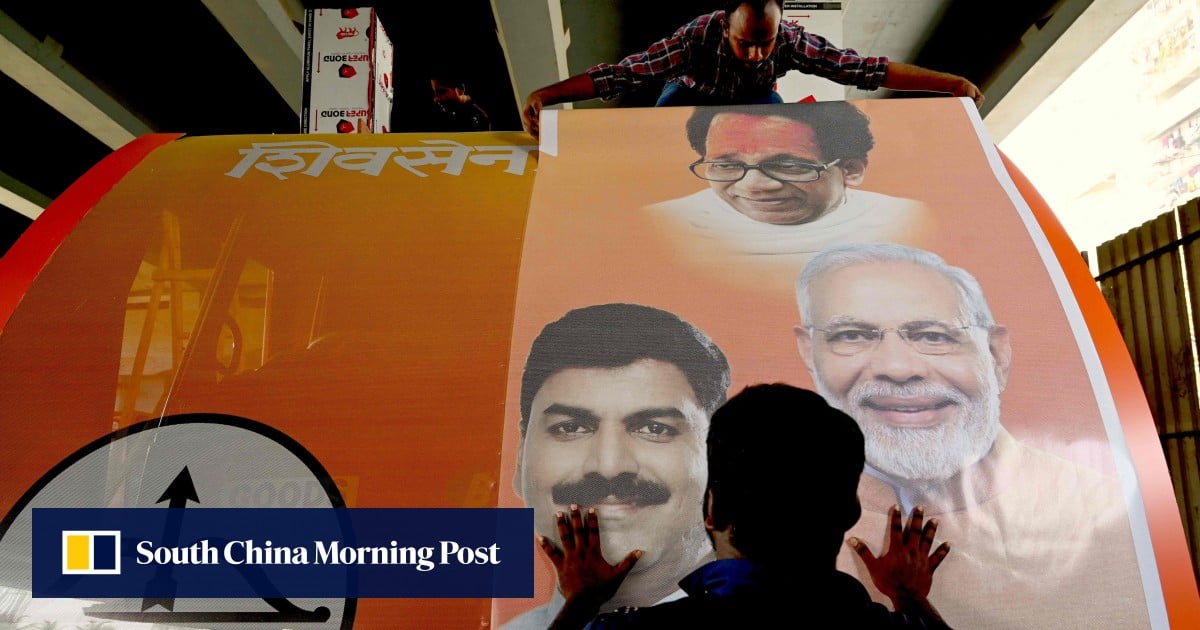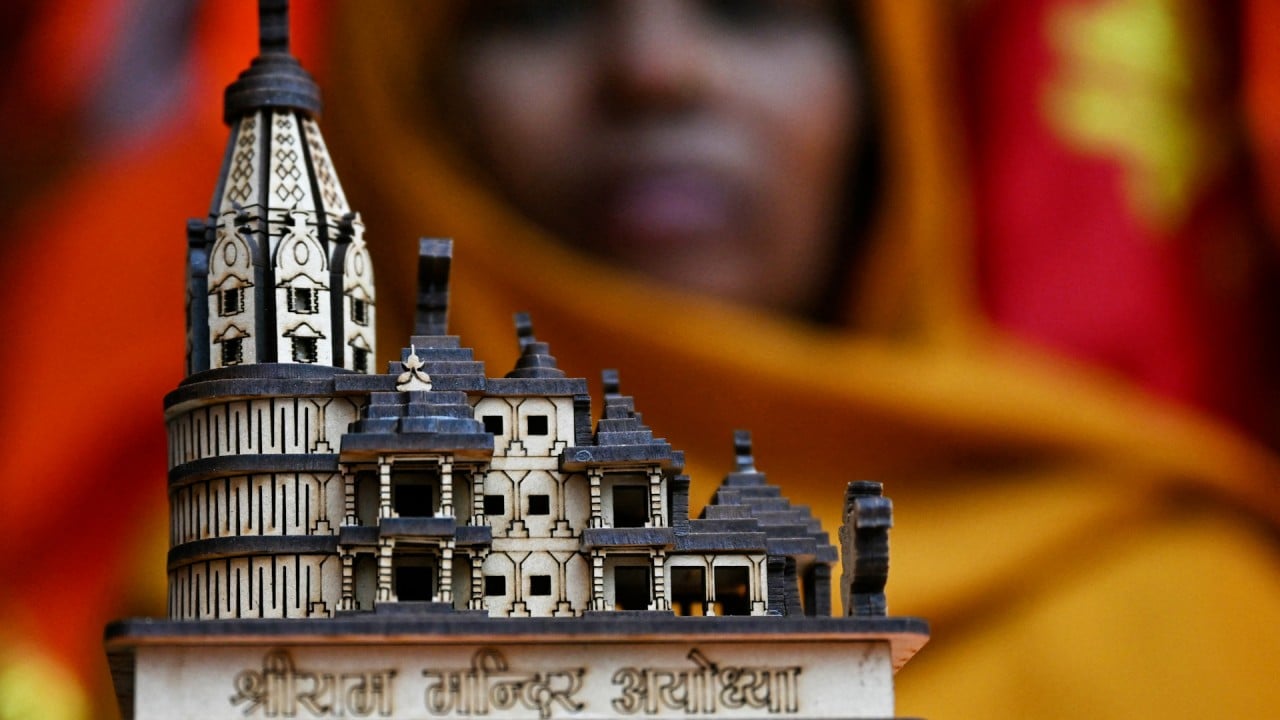“There is a complete absence of an overarching national narrative. It has reasons to make the incumbent or the front runner a bit jittery,” said Nilanjan Mukhopadhyay, an author and independent political analyst. “Normally, a front runner can sweep up everything if there is a single issue.”
But Mukhopadhyay said the trend so far suggested that the ongoing election was being fought on an aggregation of issues across various constituencies in which the quality of the local leadership could make a difference to the final outcome.
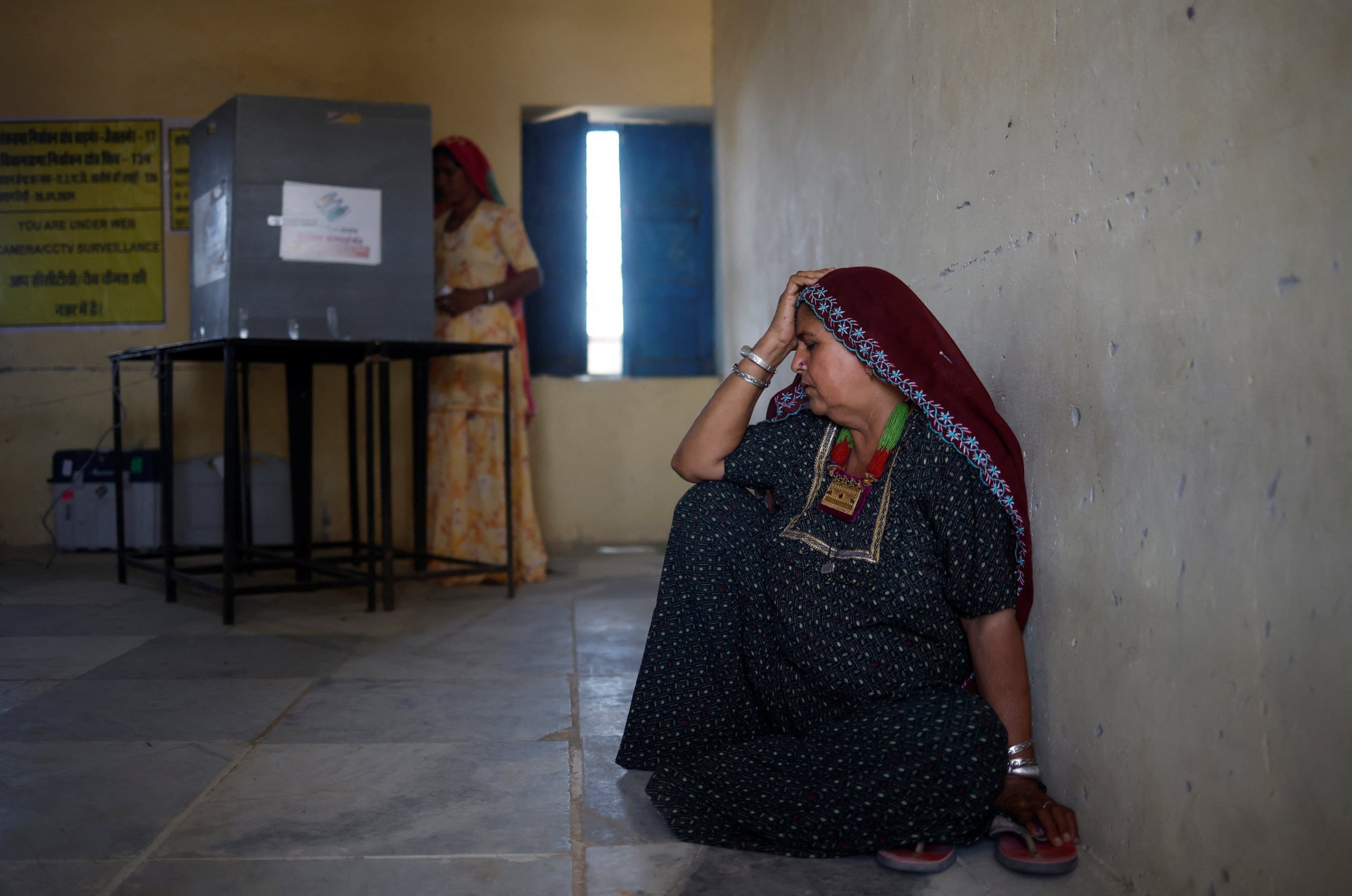
In the 2019 election, voters solidly lined up for the BJP following the government’s decision to conduct an air force strike in Balakot, Pakistan, in retaliation for a militant attack on an Indian security camp in India-administered Kashmir, Mukhopadhyay said.
That ensured Modi’s return to power for a second time following his 2014 election victory, when he won on the crest of voter anger against the Congress party-led United Progressive Alliance for alleged corruption and women’s safety issues.
“This election seems to be completely different from 2014 and 2019,” Mukhopadhyay said.
But he cautioned against over interpreting initial numbers because there could still be a “silent wave” in favour of the BJP that was not immediately apparent.
“The BJP should still be in an advantageous position, but we can’t say the victory can be taken for certain,” he said.
India’s Modi falls back on anti-Muslim rhetoric to boost BJP’s election fortunes
India’s Modi falls back on anti-Muslim rhetoric to boost BJP’s election fortunes
Mukhopadhyay said, however, that BJP leaders seemed jittery because they had fallen back on their traditional poll plank of attacking the minority Muslim community and appealing to majority Hindus.
In viral video clips that surfaced on social media last week, Modi could be seen at an election rally in western Rajasthan calling Muslims “infiltrators” and “those who have more children” and warning people that the opposition Congress party would redistribute their wealth to the “infiltrators”.
Most pollsters have predicted a win for Modi and the BJP, which is contesting against a broad opposition alliance led by Congress and powerful regional opposition parties, with the coalition fielding common candidates in several constituencies to consolidate their supporters’ votes.
In 2019’s parliamentary elections, the BJP won 303 of 545 seats in the lower house – a clear majority – after securing 37 per cent of the overall vote with the help of its staunch Hindu support. A party needs to win at least half the seats, or 272, in the parliament’s lower house to secure a majority.
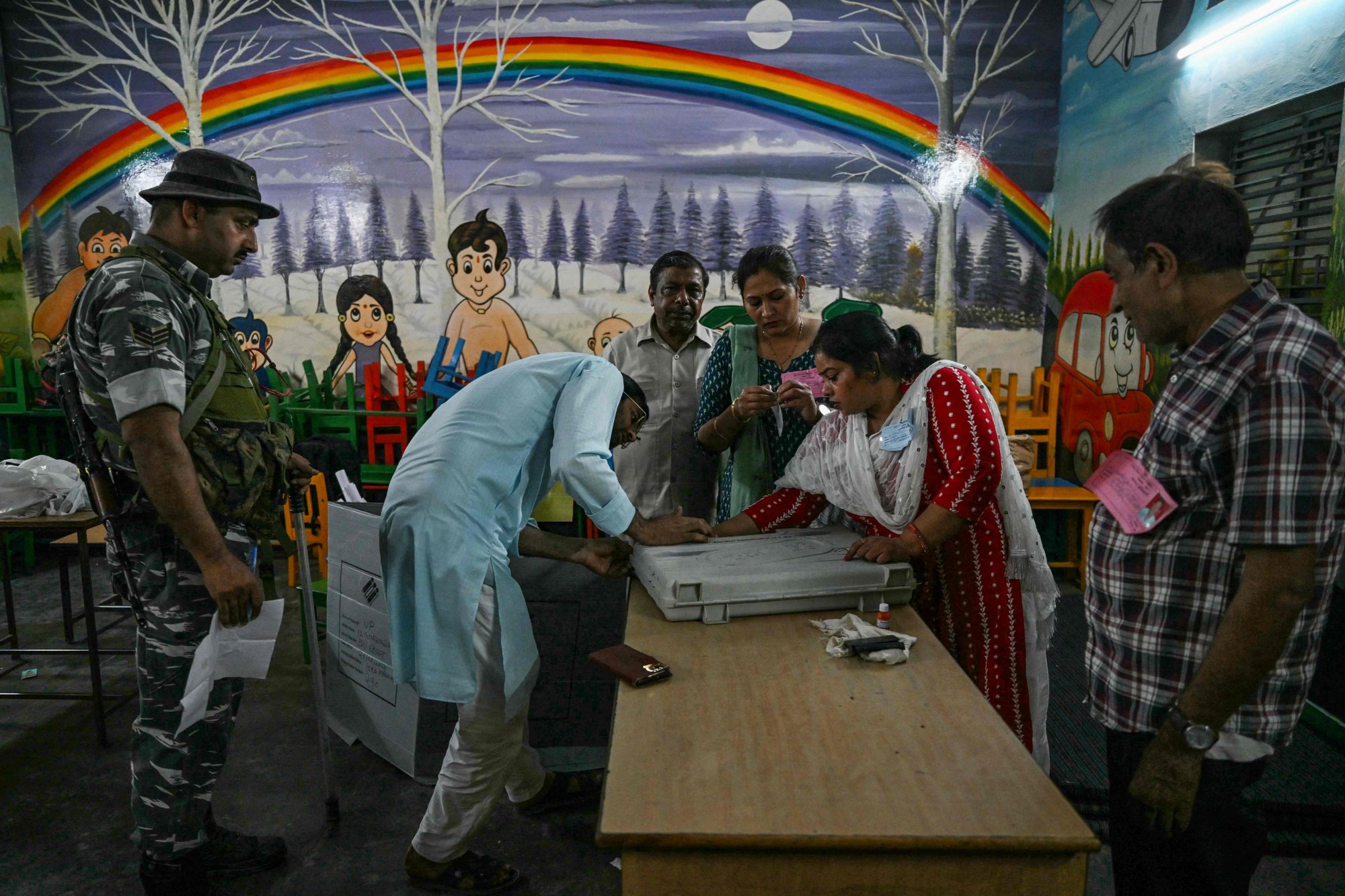
Yashwant Deshmukh, founder of research firm C-Voter, said it would be hasty to conclude that a drop in voter turnout would necessarily be detrimental to the BJP since the impact would vary among constituencies.
The BJP has a realistic chance of winning more seats in some states in this year’s election compared to five years ago, he added.
The BJP’s victories in five state elections late last year have raised expectations that it will be able to return to power even in the national polls.
Tough battle likely
Enthusiasm among Hindu voters for the well-publicised opening of a temple to the Hindu god Ram at the site of a razed mosque in northern India’s Uttar Pradesh state further bolstered hopes that Modi and the BJP would maintain their power.
Smita Gupta, an independent political analyst who travelled to Uttar Pradesh recently, said religious issues appeared to have waned as a vote driver in many parts of the state, with residents questioning whether such issues made a difference to improving their everyday lives such as getting jobs.
“Many people are unhappy with the BJP but it does not necessarily mean that they are excited by the opposition either. I got the sense that they want the BJP to be cut down to size,” she said.
“The Hindu-Muslim fault line has not disappeared, but it is not being spoken of; instead caste has become important again,” Gupta said, referring to traditional voting patterns in Uttar Pradesh where certain sections preferred to vote for people from their own castes.
The key reasons for voter disenchantment appeared to be high unemployment and fears that another clear BJP majority could embolden the party to end or reduce caste-based job reservations, she said.
India’s constitution reserves a portion of government jobs and seats in educational institutions for certain castes and tribes who have historically been deprived.
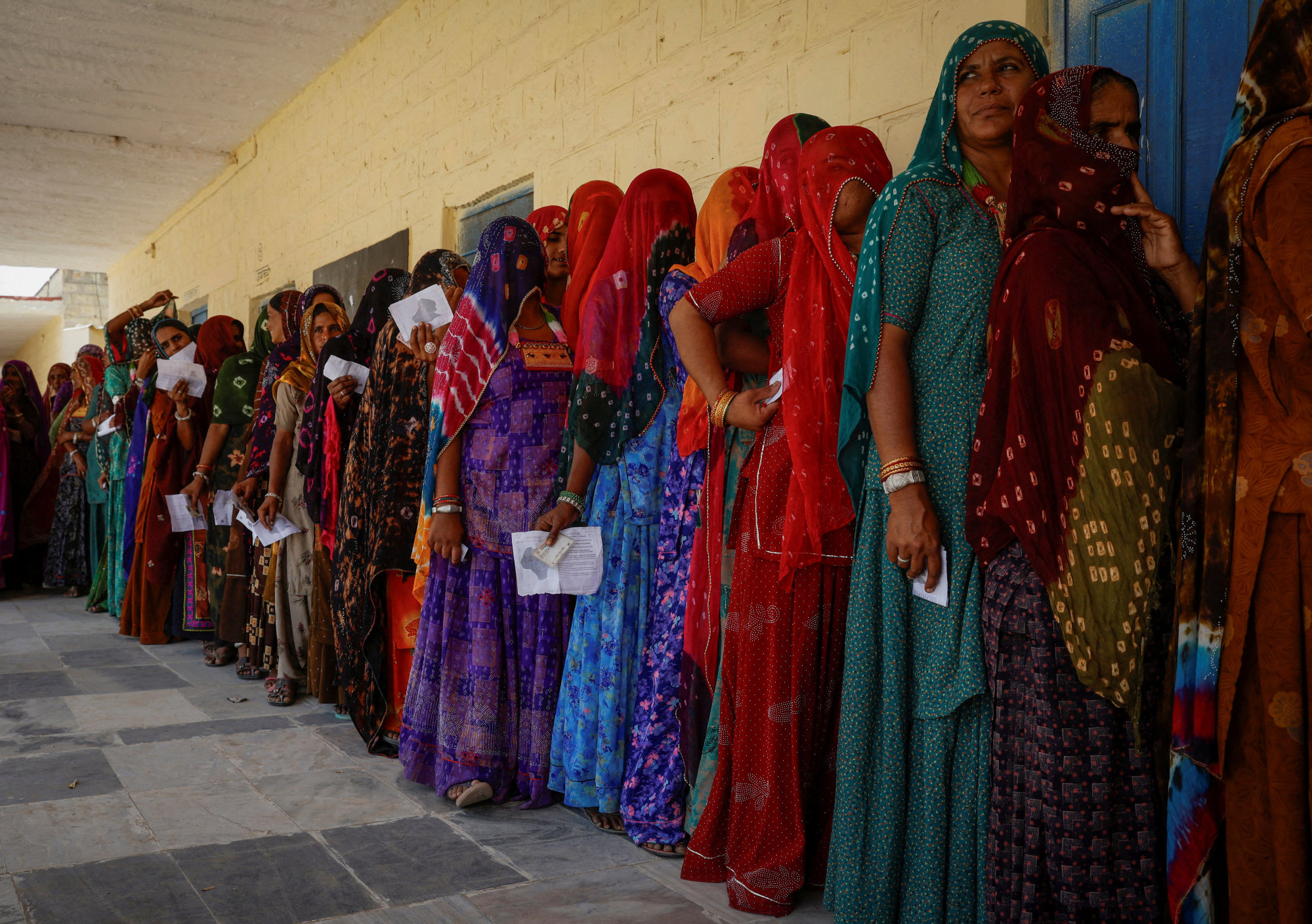
Analysts say the BJP’s chances of making inroads into non-traditional areas, especially in southern India, in terms of winning parliamentary seats are marginal despite their concerted efforts to woo electors.
“Any party which is in power should be worried about the turnout. A lower turnout is not supportive of the party, but after ruling for 10 years, one should expect that,” said Harish Ramaswamy, an independent political commentator.
Excessive dependency on the single figure of Modi had its disadvantages as well, he said.
“People ask, do you think only one man can do everything? Such conversations come up,” he said.

